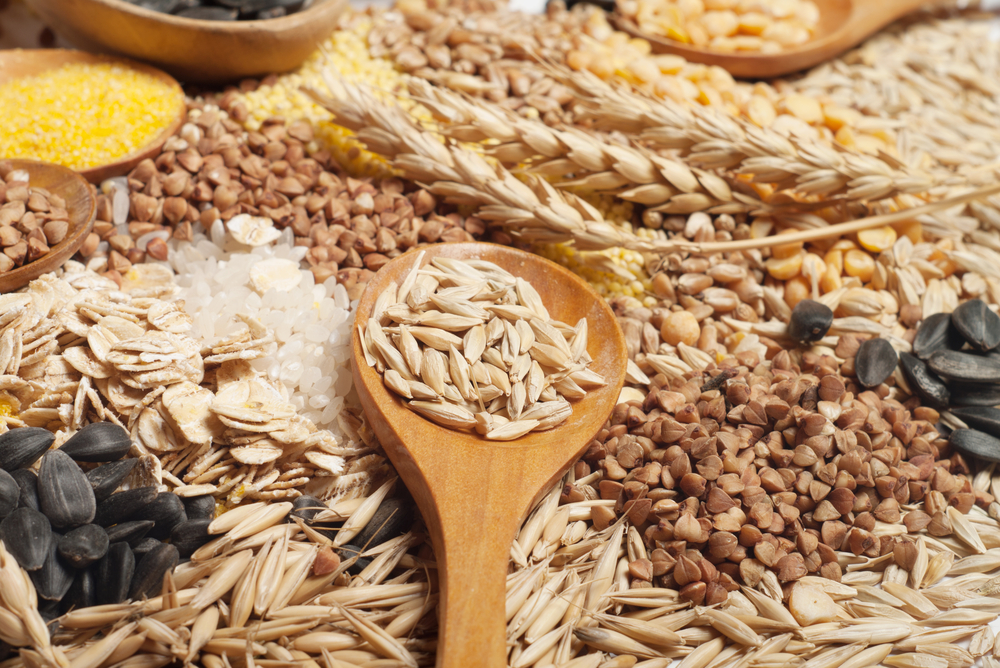
Cereals
Cereals represent the kind of vegetable most cultivated in the entire world thanks to their adaptability to environmental conditions.
The products resulting from their processing have always been the staple food for the human organism and are particularly present in the Mediterranean diet. They represent an excellent energetic source and, on average, cover the 50% of daily calorie requirements, by furnishing a discrete resource of protein, vitamins, and mineral salts.
The most common and most consumed species are those belonging to the grasses, identifiable in:
- Wheat: the most important for the human consumption, subdivided in hard wheat, used for pasta-making, and soft wheat, used for the production of bread and baking product;
- Rice: particularly important in the Asian countries, it represent the 50% of the basic alimentation in the majority of the global population;
- Barley: used for human consumption and in the production of beer, but as well for feed;
- Corn: the 82% of cultivated corn is addressed to animal husbandry, the other 18% is destinated to other utilises, such as human food use, and energetic use;
- Sorghum: at global level, the sorghum represents the fifth most important cereal after the corn, rice, wheat, and barley. Its cultivation is particularly developed in Africa, Central America, and South Asia;
- Oat: the use of oat is both for feedstuff and human consumption, by which is indicated in the case of hypocaloric diets;
- Rye: the advantage represented of the cultivation of this cereal is its resistance to mountain climates and altitude, particularly popular in North Italy, is prevalent in diets for benefits in terms of intestinal health.
The production phases of cereals variates according to the cultivated plant, but they are subdivided in:
- Primary production, which is cultivation;
- Process, which variates according to the desired final product;
- Transformation, which takes place in mills or feedmills or farms according to their intended use;
- Transport of goods.
In the world the field addressed to the cultivation of cereals occupy about the 50% of the arable land area, and are spread over all continents.
The countries with the major production of cereals in the entire world are: China, United States, and India. In Italy cereals occupy the 45% of the arable land area, by which the majority is concentrated in the North.
The problematics linked to the consume of the soil have impact to the cereal supply chain at economic level: this, plus the goals of food safety and sustainable development, represent a challenge, and it is an incentive to innovate, for the entire supply chain.
Sustainable Soil and Crop Protection
With the Sustainable Soil and Crop Protection is promoted the usage of new sustainable technologies for the crop’s protection and the environment’s tutelage; with the scope of guaranteeing a better food safety and a smaller impact on the nature.
The fundamentals principle detectable in the adjectives ‘healthy, sustainable, and traceable...
Supply chains involved:
Plant-based Beverages Cereals Canned Foods Nuts Fruit and Vegetables WineryFood Safety and Quality
With the term ‘Food Safety’ it is intended a normative and sanitary ambit that comprehends a series of new practices and rules that have the purpose of ensuring the quality of the food product bought from a citizen-consumer. Indeed, under this optic the food product must be consumed in a healthy way, must be hygienic and risk...
Supply chains involved:
Cereals Canned Foods Nuts Fruit and Vegetables WineryProcess and Product Innovation
The shift to the Industry 4.0 is a moment of deep change and innovation capable to disrupt all the sectors.
The industry 4.0 is considered as a new Industrial Revolution that appears to be even more disruptive of the previous ones. It is seen as such because it is born from the convergence of the IT and OT technologies to create a digit...
Supply chains involved:
Plant-based Beverages Coffee Cereals Chocolate Canned Foods Beer Dairy Products Nuts Food Supplements and Nutraceuticals Milk Plant oils Fruit and Vegetables Pasta Meat Baking products Sweet products Rice Cold Cuts and Cured Meats Winery